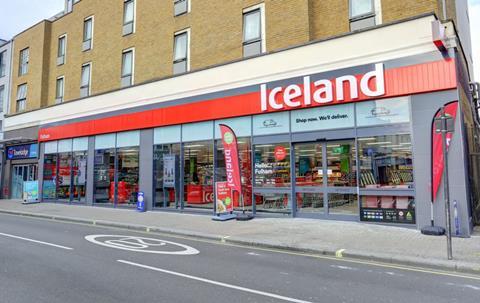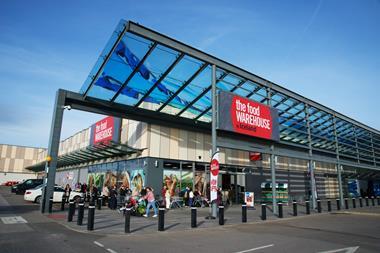
Iceland Foods slipped to a loss last year after its supply chain, interest payments and employment costs all surged.
The supermarket may have to put up prices as a result, Iceland warned in accounts posted at Companies House this week.
Turnover was flat, rising by 0.2% to £4.1m during the 52 weeks to 28 March 2025.
Ahead of the publication, Iceland executive chairman Richard Walker claimed the supermarket achieved “market-leading performance” during the year, despite a slowdown in profits.
Sales grew 2.8%, after Iceland invested heavily in expanding its £1 or less range to maintain volume amid a burgeoning supermarket price war, the accounts show. Its volume growth “outperformed the UK grocery market by 5.1%” as measured by IGD, it claims.
However, the upsurge in volumes led to “significantly increased operating costs” across its delivery network, including the delayed opening of its new Warrington DC. It also achieved “record” online sales.
Performance had been heavily impacted by increases in the interest it pays on its debt following a refinancing in July 2024, Iceland said. As a result, losses were £4.7m, down from an £11m profit last year.
Adjusted EBITDA shrunk from to £142.1m from £150.9m.
The supermarket warned that despite its “record” volumes and work to maintain its value proposition, it expected earnings to fall during the early quarter of next year, as a resut of rising employment costs. Ultimately, it would have to increase prices.
“We are doing our utmost to offset the growing input cost pressures caused by suppliers seeking to recover the increase in their own labour costs arising from last autumn’s budget, but will inevitably have to pass some of these on to consumers, where we can do so without weakening our own price position in the marketplace,” Iceland said in the results.
As a consequence it expected food inflation to peak at “some 4%-5% in the next six months”. Iceland CEO Tarsem Dhaliwal previously warned the supermarket may have to increases prices, during an interview with The Grocer in March.
Iceland would work to “fully offset” its own “substantial cost increases” incurred as a result of rises in National Insurance payments and national living wage with the “aim of maintaining EBITDA”.



















2 Readers' comments